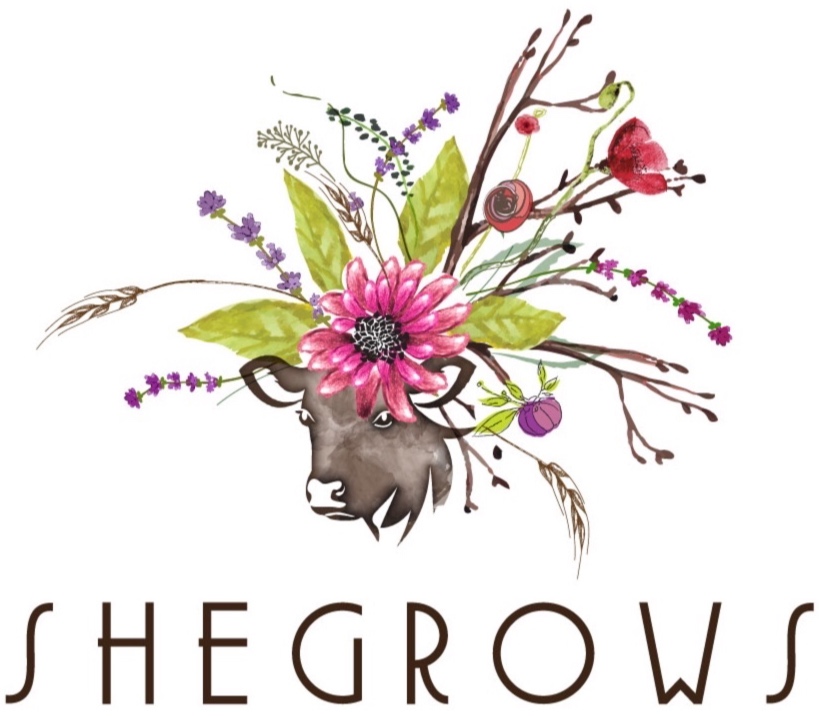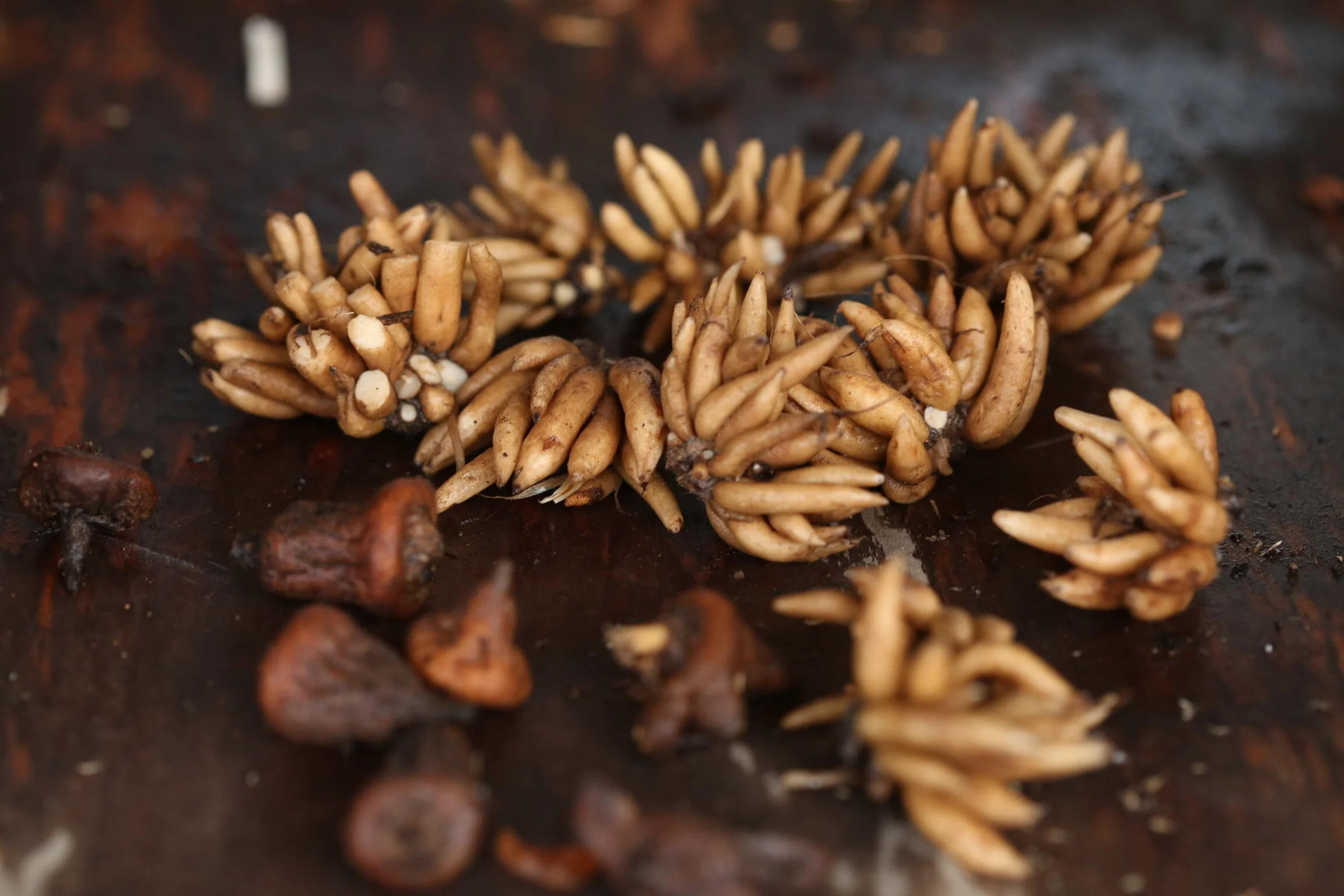Our Goals
Our goal is to create a farm with a Closed Loop Fertility system. This means everything we need to farm is a bi-product of the farm (compost, manure, seeds, etc). In Biodynamic Agriculture this would be considered a ‘healthy farm’. In contrast, farms using inputs from outside would be considered a ‘sick farm.’ This is certainly a lofty goal for most farms and even more challenging for urban farms that are bound by city restrictions and land limitations. The philosophy is one that guides us in the decisions we make— from our work directly with the land as well as in the studio. The following is a list of current practices:
On the Farm
Biodynamic Preparations – We use biodynamic preparations for field, foliage, and compost systems (learn more from Josephine Porter Institute). These are similar to small doses of homeopathy remedies for farms.
Composting Program - We compost all our plant waste material (from flower stems to fallen leaves, grass clippings, and kitchen scraps). We also have a composting program for our team and neighbors to compost autumn leaves.
Compost Tea – We make compost tea and spray our plants and grounds weekly. This restores beneficial life in the soil and offers a rich dose of organic nutrients directly to the plant’s foliar system.
Animals - We raise a flock of chickens for their manure (and eggs). Animal manure is a key ingredient in building rich compost for our fields—not to mention the magic that unfolds by having a relationship with animals on the farm.
Building Soil – We upcycle coco coir from local cannabis growers as a sustainable source of organic matter. Soil full of organic matter retains moisture and holds nutrients longer, creating a healthier place for plants to live.
Cover Crops – Whenever we can, we use cover crops in the off season to improve soil structure and reduce erosion.
Water Conservation – We use a drip system on a timer to water our plants directly at the soil level. We are also refining our collection of species to grow those that are best suited for our environment.
Seed Saving – We collect as many seeds as we can so someday we will be able to supply our own needs. Along the same lines of saving seeds, we divide all our dahlia tubers so we can increase our inventory organically vs. buying new tubers every year.
BioControls - We use beneficial biocontrols to manage pest like Japanese Beetles instead of spraying pesticides. We also use other types of beneficials and herbal horsetail tea remedies to control grasshoppers, aphids, and mold.
Weed Control – We reuse landscape fabric each year to suppress annual weeds and cardboard and mulch on all of our perennial beds. For noxious perennial weeds we use an organic herbicide called AXXE, or 24-D, to spot treat when needed. These are used following strict safety standards for people and insects.
Plant Trees – We’ve planted 35 new trees on our property: some for shade, some for flowering branches, and some for food. All provide food and shelter for birds and insects, while using carbon dioxide in their life cycle. Our master plan is to plant an additional 40-50 more trees in the next 3 years.
Reducing plastic—We reuse all of our seed starting trays each year, as well as irrigation drip tape for 2-3 years, and our weed barrier for 10 years.
Recycle—We recycle cardboard we get from our vendors by putting it back into the fields to block weeds in perennial beds.
In the Studio
Packaging – We use 100% Kraft paper sleeves for our CSA and have eliminated single use plastic wrappers for our wholesale and wedding orders since 2021.
Foam Free – We use metal pin frogs or chicken wire to secure flowers into compotes instead of non-biodegradable floral foam.
Natural – We don’t use any type of chemical spray on our flowers to change their appearance.
Always local – The flowers we use in the studio are grown right outside our doors.
Cut to Order – We rarely cut flowers to stock the cooler, requesting customers order ahead of time so that we can provide the freshest flowers possible.
Sustainability is a complex equation, one which we consider a journey in undertaking, not simply a destination.

